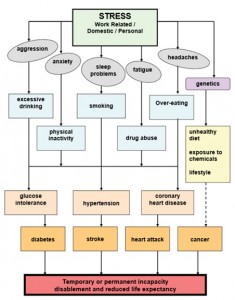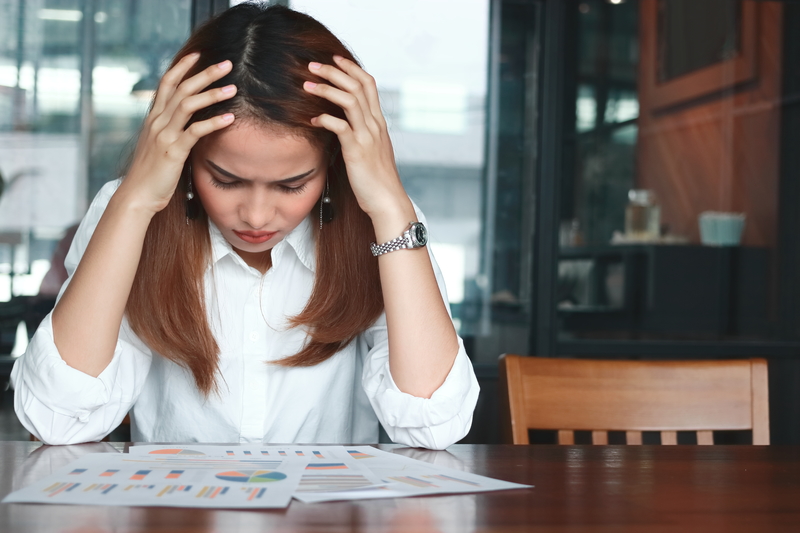Effects of Stress: How Do People React When Stressed Out?

How did a stressful situation in the past effect you?
Do you still remember the very first time you stood up in front of your bosses to deliver your presentation? How about the first big project that was assigned to you? Do you still remember how ‘stressed out’ you were when handling those events? The event itself is so stressful that you might experience a sleepless night before it. However, the long process you endured to make sure everything will be fruitful is surely much more stressful and frantic.
Physical, emotional and behavioral effects of stress
The effects of stress can manifest in many different ways, depending on an individual’s personality.
Generally, here are the physical effects of stress:
- Palpitations, awareness of heart beating, chest pains
- Diarrhea, constipation, flatulence
- Indigestion
- Loss of libido
- Muscle tension
- Menstrual problems
- Tiredness
- Breathlessness
- Sweating
- Tightness in the chest
- Skin and scalp irritation, eczema and psoriasis
- Increased susceptibility to allergies
- Frequent colds, flu or other infections
- Rapid weight gain or loss
- Backache, neck pain
- Migraines and tension headaches
With regards to emotional aspect, here are what stress can do:
- Mood swings
- Panic attacks
- Morbid thoughts
- Low self-esteem
- Irritability
- Feeling of helplessness
- Impatience
- Anxiety
- Crying
- Cynicism
- Withdrawal into daydreams
- Intrusive thoughts or images
- Nightmares
- Suicidal feelings
- Paranoid thinking
- Guilt
Behaviorally, a person under the spell of stress may also change
Here are the common behaviors a stressed out person often manifests:
- Susceptibility to accidents
- Changes in eating habits
- Increased smoking
- Restlessness, hyperactivity, foot tapping
- Over-dependence on caffeine
- Changes in sleep patterns
- Out of character behavior
- Voluntary withdrawal from supportive relationships
- Disregard for personal appearance
- Loss of confidence
- Sullen attitude
- Clenched fists
- Obsessive mannerisms
- Increased absence from work
- Aggressiveness
- Poor time management
Consequences of stress
These are just a few of the negative effects of stress. More terrible effects are also bound to happen once the individual go through it for a longer period. To name a few, health related problems such as cancer, diabetes, stroke and heart attack are also associated with stress. The figure below shows how stress is able to result with these consequences.

At the end of this figure, you will notice that even life expectancy is reduced when stress is felt most of the time. Let us take note that a simple work pressure is much different from stress. Stress is when a person is unable to cope with excessive demands and pressures. It can happen not only at work but also at the comfort of our own homes.
Stress has many causes and it affects people in many different ways
In the workplace, the devastating effects of stress are not concentrated solely on the person who experiences it. It can also be revealed on the performance of the organization itself. Most of the time, stressful situations are inevitable. However, it is still possible for the management to foresee and pre-empt their occurrence, and also for employees to learn to effectively cope with it.
There are many ways to avoid stress
For instance, a company may work on risk assessment, improved communication, ongoing performance reviews, education, and training. Individuals may seek for help when they feel that they are overwhelmed with pressures and demands. The key is communication. Communicate how you feel. Tell them when you need assistance.
Have a stress-free time!
What are your experiences with stress? Do you have experience how to be less stressed out?


